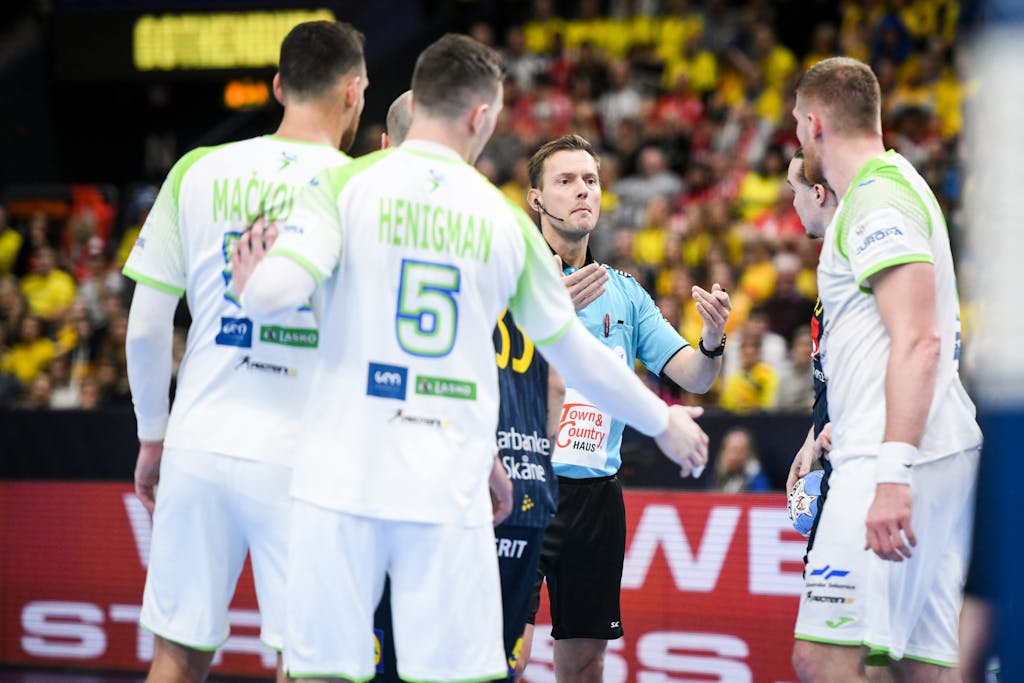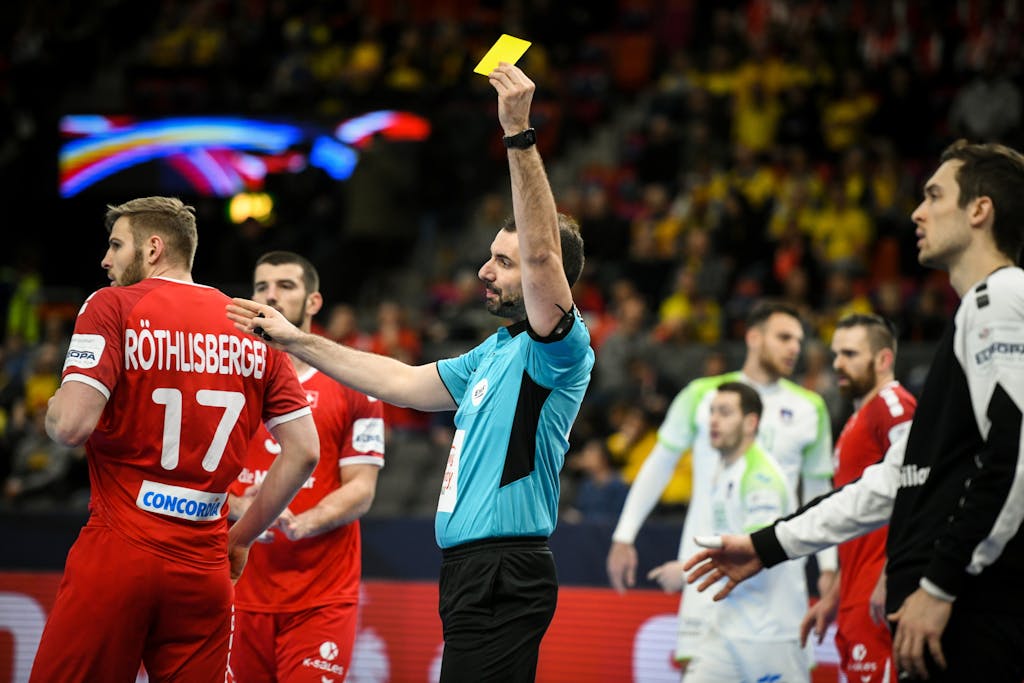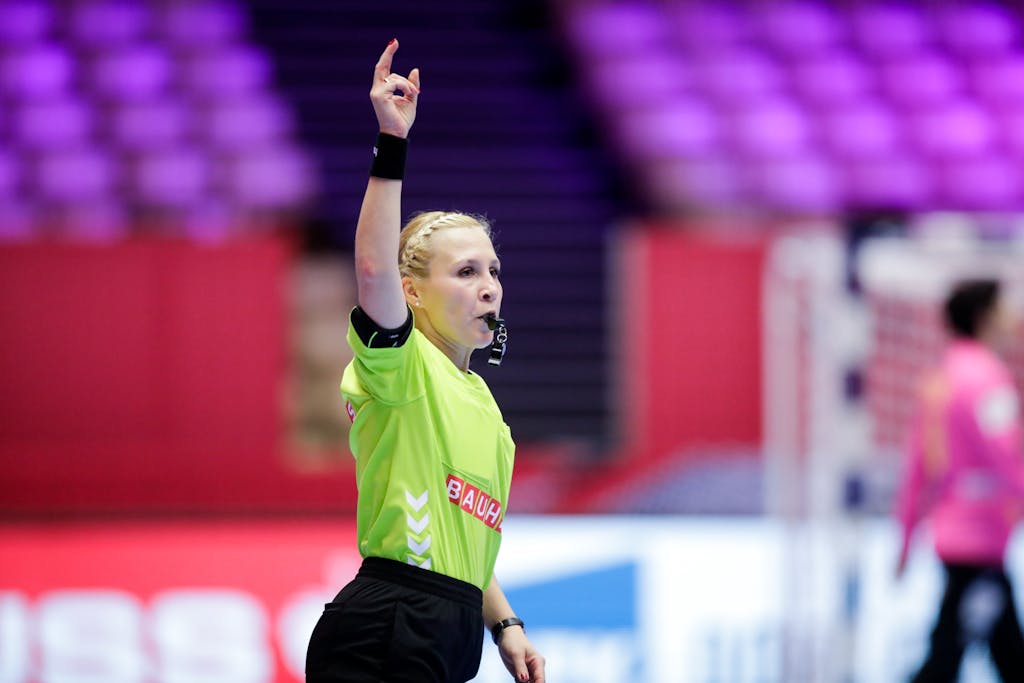The European Handball Federation is collaborating with Sportradar to launch a novel referee education programme in 2022, the latest initiative as part of the two bodies’ wide-ranging integrity-focused relationship.
It will form a key pillar of the long-term association between the two parties that was extended through to 2030 early last year.
The integrity partnership between the EHF and Sportradar began back in 2018 when the former asked the latter to investigate rumours of suspicious betting behaviour swirling around the body’s high-profile competitions.
While speculation about referees remained unproven following the probe, the EHF was aware that the reputational damage caused by lingering doubts and disparaging remarks could snowball into a crisis of confidence in the future.
Given such an outlook, the EHF and Sportradar teamed up to take robust action.
“The cooperation has already been very fruitful and has had an impact on handball of different levels – and not just at the top of the sport,” says Martin Hausleitner, the EHF’s secretary general.
“The educational initiatives will build on this and the investigative elements that have taken place. Until now, it is likely that many referees have simply not realised how important their roles are in terms of maintaining integrity.”

Education
Sportradar Integrity Services will continue to monitor events on an ongoing basis to detect any unusual betting activities through its renowned Universal Fraud Detection System. However, it is the creation of the referee education programme that the EHF hopes will safeguard the sport’s top European competitions, participants and stakeholders on a long-term basis.
“This is not just a sit-and-listen programme,” says George Bebetsos, the EHF’s referee programme coordinator. “This is a mandatory programme that will lead to certification through examination, and there will be workshops, webinars and online materials.
“There are only two factors that can influence the outcome of a match: the referee and the players. So, if we can influence and educate the referees as much as possible, that can only be beneficial for the integrity of the sport.”
At the outset, the programme, which is subsidised entirely by the EHF, will run for two years and feature 300 indoor handball referees and 100 beach handball referees.
“We wanted to include beach handball referees in the programme, as well as the indoor referees, as beach handball is continuing to grow and is part of several major international multi-sport events,” Bebetsos adds.

Proactive approach
For Andreas Krannich, Sportradar’s managing director of Integrity Services, the initiative has marked a natural step for a proactive federation that acknowledges the importance of such issues.
“For the past four years we have been working in partnership with the EHF to deliver educational modules to a variety of different stakeholder groups,” he explains.
“Moving forward, this programme represents proactive commitment from the EHF towards providing long-term sustainable education to the referees. It is about consolidating and extending educational elements already put in place for stakeholders over a longer period.
“What’s really nice about this project is that Sportradar has been invited to support the EHF’s education programme. It’s a clear statement of intent from EHF that they would like to deliver education and they have come to us as leaders in this field.”
Krannich adds that the programme offers a “blended learning approach” that brings together in-person workshops and online learning, underpinned by a productive collaboration that amplifies the qualities and knowhow of both Sportradar and the EHF.
“We want to cater to different learners’ needs and the styles they would choose,” Krannich says. “It’s also very important to understand that we are going to have contingencies for the programme in place due to possible disruption caused by Covid-19, as we do live in a more uncertain world.”

Programme content
The content of the programme itself will be clearly defined between the first and second year.
“The first year will focus on anti-match fixing and betting-related misdemeanours, and there will be an introduction to what integrity is, because it is quite an abstract concept for some people. Then the second year will focus on social media integrity,” Krannich says.
“We know that match-fixers are approaching stakeholders in all sports directly via social media, and over the past year, there has been an increase in the prevalence of these kinds of approaches. However, there are other topics related to the wider concept of integrity that fall under the social media umbrella, including the potential misuse of social media.
“All of this is specifically targeted at referees because one-size education does not fit all. We have to make sure what we are providing is focused on our audience, and we look at preventative behaviour and action.”
The EHF and Sportradar are also working hand-in-hand to ensure the content of the programme remains relevant in the face of evolving integrity challenges for referees.
“We will continually assess and evaluate the programme,” says Bebetsos, who highlights how the content will be customisable and kept as timely as possible.
Krannich adds: “It’s a rapidly changing environment, and match-fixers will always look to find new ways to exploit situations, including financial hardship. So, it is important to be at the forefront of preventative and proactive measures.
“We are working very closely as a team, and the representatives of Sportradar and the EHF are working collaboratively to create the material for the programme.
“We’re providing our input as experts in betting fraud, integrity, social media and more, and our partners at the EHF are contributing their vast experience and expertise in handball and concepts related to the sport. That marriage of the two sides is making this project very exciting.”